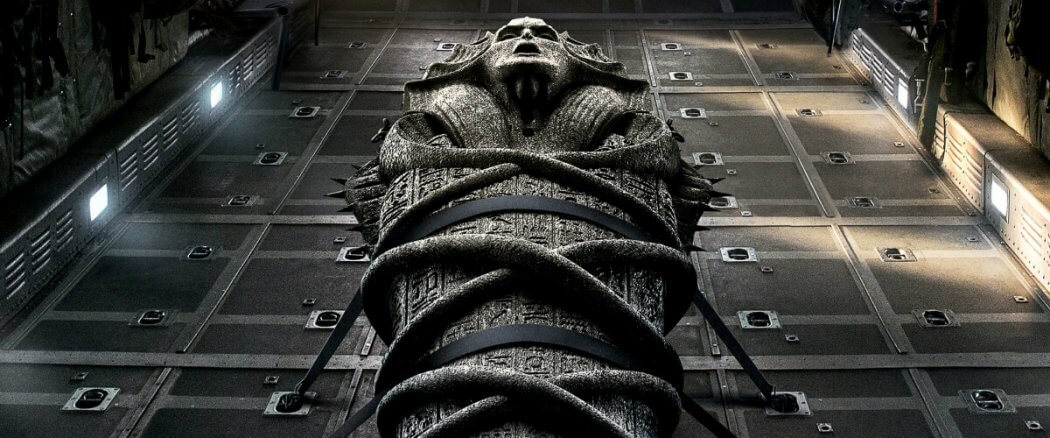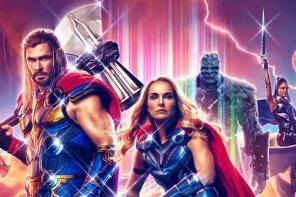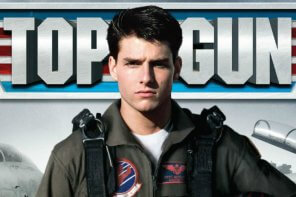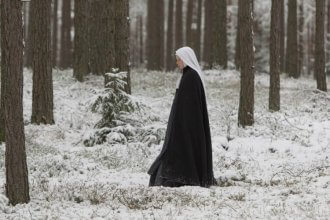Much has been made about the recent rise of movie universes. Marvel, DC, Star Wars, etc. A film universe allows production companies the comforts of a franchise — character familiarity, crew stability — while bypassing the obvious drawbacks of narrative fatigue. Need to crank out another film, but your last effort flopped? Hit your audience with a new character. On the whole, it’s a fairly safe idea… if you can start strong and earn audience’s trust early.
Take the Marvel universe: Iron Man is considered one of the great superhero movies ever made, a fun, edgy effort that wowed audiences and revived a movie star from the ashes. Or maybe take the Star Wars universe. Brought back from a disappointing decade following the prequels, J.J. Abrams piqued our interest with The Force Awakens, a fresh spin on a fan favorite sci-fi, steeped in nostalgia. As a model for success, starting strong is pretty much undefeated.
Unfortunately, the new “Dark Universe” executives didn’t get the memo. They’ve already secured the next few movies: The Invisible Man, Frankenstein, and Bride of Frankenstein have all zeroed in on their stars. But first, they have to get through The Mummy.
A Winning Formula
Remember how I said starting strong is a good bet to a successful movie universe? Another formula that seems to work almost as well is simply don’t screw it up. Look at DC, which started slow on Man of Steel, but got audiences back on board with the crowd-pleasing Batman v. Superman. They seem to be hitting their stride with Wonder Woman, and are due for a big test with Justice League slated this November. Man of Steel wasn’t great, but it also didn’t scare audiences away from the rebooted DC universe.
The play it safe formula is still a winner, and it seems to be the one Dark Universe is choosing. Add a proven hit-maker (Tom Cruise) to an award-winner (Russell Crowe) and a rising star (Sofia Boutella), and you’ve pretty much covered your bases. Add a dash of comic relief (Jake Johnson), and how can you lose?
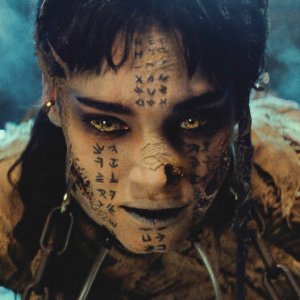 It turns out, you can lose by wasting your top talent. On the whole, it’s an incredibly hard thing to do. Tom Cruise is still one of the most charismatic actors working, and spinning him into a jerk in need of redemption should fit right into his wheelhouse. But the film’s narrative doesn’t allow him room to maneuver that redemptive arc before it gets swept up in set-up for future Dark Universe entries. Right as you’re pulled into Cruise’s charms, you’re violently yanked back to meet Crowe’s Dr. Henry Jekyll.
It turns out, you can lose by wasting your top talent. On the whole, it’s an incredibly hard thing to do. Tom Cruise is still one of the most charismatic actors working, and spinning him into a jerk in need of redemption should fit right into his wheelhouse. But the film’s narrative doesn’t allow him room to maneuver that redemptive arc before it gets swept up in set-up for future Dark Universe entries. Right as you’re pulled into Cruise’s charms, you’re violently yanked back to meet Crowe’s Dr. Henry Jekyll.
On a personal note, the Jekyll and Hyde story has always been one of my favorites. And based on Russell Crowe’s limited performance, I’d be down for a solo movie. But the script doesn’t allow Crowe to play with either of his altar egos. Jekyll is merely a plot device throughout the movie. And Hyde — let loose for all of 2 minutes — is so much fun, you’re disappointed when they cage him back up. The film does a similar disservice to Jake Johnson, reducing him to a wise-cracking sidekick who inconsistently pops in to move the story forward.
The only real winner here is Boutella. She’s mostly been known for her stunt chops in her career, but The Mummy allows her room to play with her emotional range as an actor. As the cursed Ahmanet, Boutella brings a seductive villainy to the screen, at times convincing the audience she may not be as bad as she seems. She’s the only character with a developed arc — thanks to a step-by-step walkthrough at the beginning — and the only one I felt real sympathy for by film’s end. Going 1-for-4 with your lead actors isn’t a great percentage for a franchise-launching vehicle.
And if you’re wondering why I left out Annabelle Wallis… it’s probably because I almost forgot she was in the movie. Her character is dry and one-dimensional, an unnecessary player that never earns the emotion the writers want you to give her. So make that 1-for-4 a 1-for-5.
Entering the ‘Dark Universe’
So if the focus of The Mummy is first and foremost to build the Dark Universe, how does it fare on that front? In this case, we’re dealing with a lot of quantity and less quality.
The writers spend a considerable amount of time in the second act pinning the central pieces on the Dark Universe board. Namely, Dr. Jekyll runs a secret organization set on discovering and studying the great evils of the universe. “Welcome to a new world of gods and monsters,” he says, echoing the 1935 Bride of Frankenstein. Born out of his own affliction, Jekyll uses considerable wealth and influence to track these monsters down, and from his laboratory collection, he’s run into quite a few. Ahmanet represents the purest form of evil he’s yet to encounter, her goal to unleash the Egyptian god of death onto the new world.
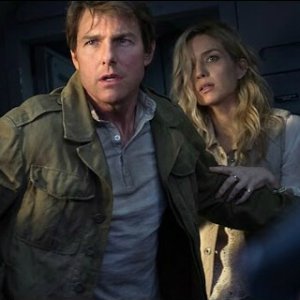 As usual, I won’t spoil anything for you. But I will say this: these are awfully big stakes for the first movie of the Dark Universe to set. And, confusingly, they’re stakes that the audience is forced to reckon with by film’s end. Not that they’re earned as much as forced upon us, but they are there nonetheless. In an even more confusing twist, the writers undercut their own mythology in favor of a more… optimistic end. This makes more sense if you’ve seen the movie, but not that much more sense.
As usual, I won’t spoil anything for you. But I will say this: these are awfully big stakes for the first movie of the Dark Universe to set. And, confusingly, they’re stakes that the audience is forced to reckon with by film’s end. Not that they’re earned as much as forced upon us, but they are there nonetheless. In an even more confusing twist, the writers undercut their own mythology in favor of a more… optimistic end. This makes more sense if you’ve seen the movie, but not that much more sense.
I left The Mummy feeling both cold and unsatisfied toward the resolution it reached. I thought, “If you weren’t going to give us a creative ending, at least follow your own rules.” What we’re left with is a Dark Universe in limbo. Clearly, The Mummy mostly serves as the birthing place of a universe. And yet, the stakes are so high and so muddled by the end, we’re left without a clear resolution as to where everything is going. And if this is all confusing you, don’t worry. I’m almost as confused trying to make sense of it all.
A Dark and Empty Universe
Amidst a sea of disappointing performances, confused writing, and lackluster effort, I still felt most let down by another aspect of this new movie universe.
Like the best films of old, a good universe will find something to say, or at the very least an idea to explore. Marvel uses its protagonists to question the nature of responsibility, the limits of freedom, and the dynamics of family and friendship. Star Wars explores the nuances of good and evil, the light and dark side of the Force merging into grey areas for us to explore. Even DC seems hell-bent on examining the ins and outs of — and this is a bit on the nose — justice.
But I just don’t see what the Dark Universe is trying to do or say on a grander scale. One could argue the creative minds in charge are working to establish a greater good vs. evil narrative. But based on the interactions in The Mummy, evil is more a curiosity than a side to choose. Nothing is really made of the questionable tactics Jekyll uses or the problems inherent in letting Ahmanet see her plan through. No one ever takes a side, despite a lot of furtive glances and worried looks in the face of shocking revelations.
In the end, I was left with nothing to hold onto. To loosely echo the Apostle John, The Mummy is neither hot nor cold, rather a lukewarm offering that leaves a bland taste in my mouth. What’s even more disappointing is the presence of clearly workable pieces that are cast aside in favor of vague attempts at world-building. I don’t even have to get biblical to point out that a movie with nothing to say is a movie worth skipping.
In the scope of everything The Mummy has to offer, the most I can say is this: the Dark Universe isn’t a bad bet to make. The draw of classic cinema, rebooted with the right pieces, could make for a fascinating effort. It might be better as a looser anthology-type universe, but the right people can make anything worth watching. And with people like Javier Bardem, Johnny Depp, Russell Crowe and Tom Cruise signed on, Universal has to know what it’s doing, right? Maybe that’s the case. But the studio didn’t do itself any favors by betting big on the future and serving up a half-hearted effort like The Mummy as a first course.

